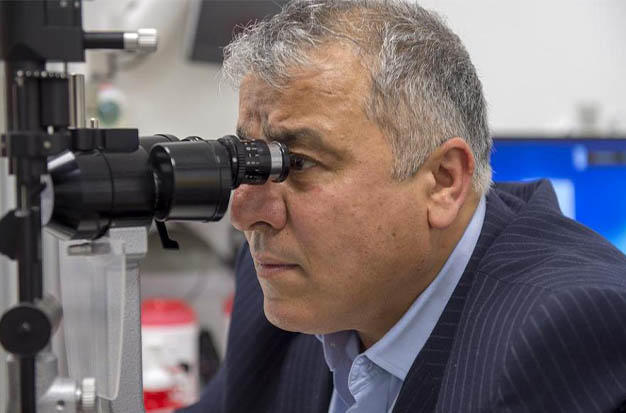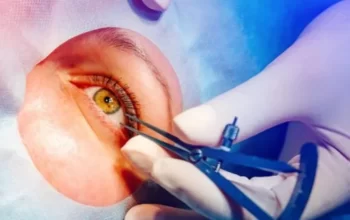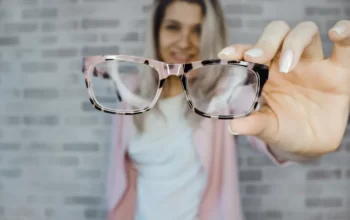
People now take a greater interest in their medical care and available treatments than in previous years. They want to actively participate in selecting the therapies, medications, exercises, and diet they should follow to address their current conditions and lower risks for others.
It is crucial to note that there isn’t really a single effective method for preventing glaucoma. What functions for one person may not function for another. In addition, there is a good chance that glaucoma will manifest itself later in life if there is a family history of the condition.
However, there are things you can do to keep proper eye fluid drainage and to lower intraocular pressure on the eye. Here are the details.
Glaucoma Prevention: How To Stop Glaucoma From Getting Worse?
Even though glaucoma cannot be prevented in and of itself, there are steps you can take to reduce your risk of developing the condition and the subsequent vision loss. But the key to minimizing eye damage and safeguarding your vision is early detection and appropriate treatment. It’s crucial to schedule routine comprehensive eye exams with your ophthalmologist if you want to have any chance of stopping glaucoma from getting worse. Here are some proactive measures you can take to maintain the health of your eyes and lower your risk of developing glaucoma.
Make an appointment for routine eye exams – As we just mentioned, the best thing you can do is make an appointment for routine eye exams with your eye doctor so they can look for any early indications of glaucoma. You may need to undergo glaucoma screenings more often or less frequently depending on your age and demographic. You might need to visit more frequently if you have other specific health issues. Find out from your doctor what kind of schedule they suggest for you and what they advise doing to avoid developing or worsening glaucoma.
Be proactive about your own eye health by becoming familiar with your family’s eye health history. Glaucoma runs in families, so finding out about it can help you prevent it from happening to you. You may need to take extra precautions and schedule more frequent screening visits with your eye doctor if you or a member of your family has been diagnosed with glaucoma.
Follow a safe exercise routine. Regular, moderate exercise, like jogging, can help protect your vision by lowering eye pressure. However, it’s important to avoid overdoing it and use caution when engaging in activities like yoga, as inverted positions can exacerbate eye pressure. Since everyone differs slightly from one another, it’s crucial to discuss a safe exercise plan that is appropriate for you with your eye doctor.
When possible, wear protective eyewear. Eye injuries can lead to secondary glaucoma, so it’s important to wear eye protection whenever possible. Exercise caution when playing sports or doing any other activity that puts your eyes at risk of harm.
Regularly apply prescribed eye drops: Prescribed eye drops are frequently the first step in glaucoma treatment or prevention. Use eye drops or any other glaucoma medications as directed if your eye doctor has prescribed them to you. Glaucoma risk can be significantly reduced by using eye drops to significantly lower high eye pressure.
The Treatments Of Glaucoma
Unfortunately, any harm or loss of vision brought on by glaucoma is irreversible. In order to stop glaucoma from getting worse and to identify it in its early stages, it is imperative to be proactive and regularly check your eye health. This point cannot be emphasized enough. There are treatment options to stop further eye damage and/or vision loss, even though any already sustained damage is irreversible. All medical procedures and medications carry some risk of adverse reactions, so it’s critical to speak with your ophthalmologist and carefully adhere to his or her recommendations.
Eye Drops
Eye drops are the most popular and frequently the first form of glaucoma treatment that eye doctors recommend. Your ophthalmologist may suggest one of the numerous eye drop varieties available, each with a slightly different purpose. The end result of eye drop medication is to lower eye pressure by either increasing the outflow of aqueous humor from your eyes or decreasing the production of aqueous humor.
Oral Medication
Your ophthalmologist may occasionally prescribe oral medication, though it is less frequent, if it appears that eye drops are ineffective at lowering your eye pressure.
Laser Surgery
Other treatments for glaucoma include laser surgery and/or incisional surgery. There are a few different types of each surgery, but whether you have incisional surgery in the operating room or laser surgery in your ophthalmologist’s office, the objective is the same: to lower your eye pressure by facilitating the drainage of aqueous humor from your eyes. To continue to keep an eye on your eye health and the effects of the procedure, you’ll need to schedule follow-up exams after the surgery. The need for additional procedures to keep your eye pressure stable is not unusual.
Six Tips For Stopping Glaucoma Progression

Regular Eyes Exams
The progression of glaucoma can be halted but it cannot be cured. Early-onset glaucoma typically progresses gradually, and the time it takes for it to cause blindness (up to 15 years) can vary. The disease will, however, likely progress more quickly if the eye’s pressure is high. In order to keep it under control, checkups are crucial.
Eye Drops
Taking daily eye drops of various types is a common glaucoma treatment. These can control the flow of eye fluid and lessen eye pressure. Glaucoma can be stopped or slowed down in its progression by lowering eye pressure. The recommended dosage of glaucoma medications is frequently ignored by patients.
You must use the drops exactly as your doctor instructs you to. They might hurt you more than helping you if you don’t.
Treatments
The most common glaucoma treatments involve lowering eye pressure with medication, laser surgery, or conventional surgery. The remaining vision can only be preserved, though, with these treatments. They don’t help or restore vision that has already been lost to glaucoma.
Don’t put off getting treatment if your doctor advises it. Observe all instructions exactly. The main goal is to lower eye pressure in order to stop the progression of glaucoma. Your doctor may suggest a variety of interventions, depending on your specific situation and general health.
Reduce Stress
Strong evidence suggests that emotional trauma and high levels of stress can impede glaucoma’s natural progression. Decreased stress in your life is therefore crucial if you want to stop the progression of glaucoma. Overall health can benefit greatly from learning to relax. High levels of stress can raise blood pressure and result in high IOP levels.
Numerous studies have demonstrated the numerous ways in which stress has an impact on our physical well-being. High levels of stress can also lead to the deterioration of nerve cells and an increase in intraocular pressure. Due to poor blood flow, constricted blood vessels, and a deficiency in nutrients that nourish our eyes, stress has this effect.
Yoga may be helpful in this situation, but you should avoid any bending exercises that put a strain on your head! You’re attempting to avoid activities like these or others that could put a strain on your eyes. Additionally helpful, breathing yoga may also help lower your IOP because it is so soothing. To reduce stress and slow the progression of glaucoma, you can also practice other calming exercises like Tai Chi.
Diet
Your diet has a significant impact on your eye pressure. You must control your diet if you want to stop the progression of glaucoma. As a general rule, stay away from all carbohydrates like pasta, baked goods, and foods high in sugar as they raise insulin levels. Foods containing the carotenoids lutein and zeaxanthin function as antioxidants and can enhance eye health.
Consuming leafy and dark-green vegetables, as well as carrots, red peppers, tomatoes, and potatoes, as well as apples, oranges, and lemons, broccoli, green cabbage, eggs, fish, cheese, and plums, are all examples of what is meant by this. These all contain crucial vitamins like A, B, and C as well as zinc and Omega-3 fatty acids, which lower eye pressure. You should be aware that coffee might make your eyes more sensitive.
Exercise
You can lower your IOP and blood pressure with regular exercise. To help with vision improvement, think about doing exercises like jogging, Tai Chi, or just plain walking three times a week. Steer clear of physical activities that require you to lift a lot of weights or that otherwise put a lot of pressure on your body.
Consistency is key to stopping the progression of glaucoma; therefore, keep up your exercise routine. The circulatory system becomes more expansive, flexible, and stronger as a result of regular exercise, which also significantly improves blood circulation. Your circulatory system will deliver essential nutrients and oxygen to your body much more quickly if you exercise regularly.
Conclusion
How to prevent glaucoma from worsening? As was already mentioned, glaucoma cannot be cured, and any harm or vision loss it causes is permanent. Therefore, the key to preventing glaucoma from getting worse is to detect it early. Plan routine comprehensive eye exams with your ophthalmologist to be proactive in keeping an eye on your eye health. You can reduce your risk of developing glaucoma by taking preventative measures and seeking treatment. To determine a schedule for your glaucoma screenings, speak with your eye doctor.
Read more about: What Is The First Sign Of Glaucoma?



